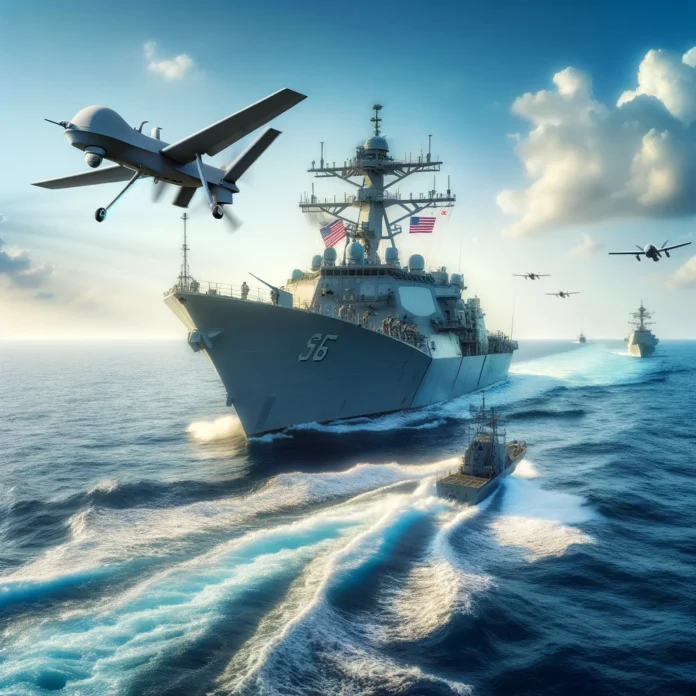Tensions in the Red Sea region have intensified after a series of confrontations involving U.S. forces, coalition partners, and the Houthi movement, a Yemen-based group. Earlier today, a U.S. aircraft, alongside a coalition warship, intercepted six drones operated by the Houthis. This action followed a declaration by the Houthis of a maritime exclusion zone, prohibiting vessels flagged by Israel, the United States, and Britain from transiting through strategic waterways including the Red Sea, Gulf of Aden, and Arabian Sea.
The intercepted drones were described by the U.S. Central Command as an “imminent threat” to naval operations in the area. In a separate but related incident, the cargo ship MV Islander, under Palau’s flag and British ownership, sustained damage from two anti-ship ballistic missiles launched from southern Yemen. The ship, despite suffering damage and a minor injury to one crew member, proceeded on its course.
The State Department condemned these actions as “reckless and indiscriminate,” stressing the broader implications for global trade and the delivery of crucial humanitarian supplies. Such disruptions have led to increased costs and delays in the transport of essential goods, exacerbating the humanitarian situation, particularly in conflict-stricken areas where resources like food and medicine are in dire need.
The Houthi movement, which has received backing from Iran, claims its maritime and aerial assaults are in support of Palestinians in Gaza. However, the State Department’s statement underscores that these attacks serve no constructive purpose in aiding Palestinian or Yemeni civilians. Instead, they escalate the conflict and hinder efforts to deliver humanitarian aid.
This surge in maritime and aerial hostilities comes amid ongoing retaliatory actions by U.S. and coalition forces following a deadly drone attack on a U.S. base in Jordan earlier in the year. The U.S. has attributed this attack to the Islamic Resistance in Iraq, a coalition of militias with ties to Iran.
In response to the heightened threats, U.S. Central Command has reinforced its commitment to counter the Houthi’s activities, emphasizing the need to safeguard the critical import routes for food and aid into Yemen. The region remains one of the world’s most significant humanitarian crises, with a vast majority of the Yemeni population reliant on external assistance.
As this situation develops, the global community watches closely, with many nations involved in ensuring the security of these critical maritime corridors. The recent incidents underline the strategic importance of the Red Sea and adjacent waterways as lifelines for commerce and aid, bringing to light the delicate balance of regional stability and international security.









